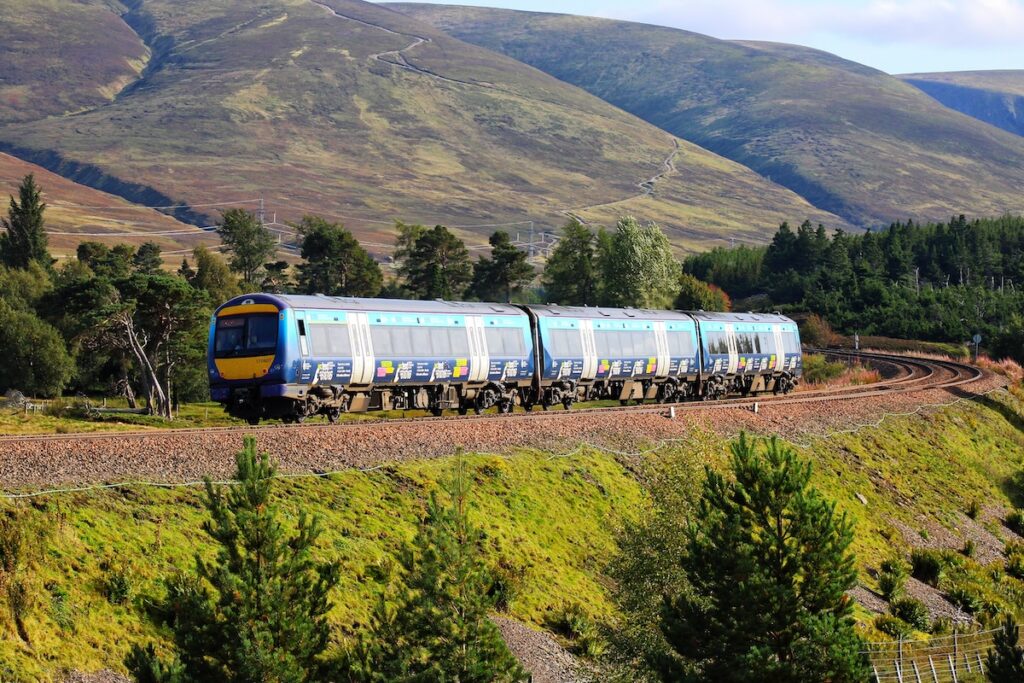A Scottish telecommunications firm is bringing Starlink satellite connectivity to trains in a ‘first’ for onboard passenger Wifi and internet-enabled rail services.
Clarus Networks, which operates from its headquarters in Bathgate, is delivering high speed connectivity to ScotRail, after passing ‘stringent’ rail certification standards.
It means travellers will be able to enjoy high-speed, low-latency internet access, tackling connectivity challenges that have long hindered rail operations and passenger experience in remote areas.
The system, which also supports real-time vehicle diagnostics and safety monitoring, is already being deployed with ScotRail – transforming connectivity across the Scottish Highlands.
Through its collaboration with ScotRail, supported by Scottish Futures Trust, Clarus is equipping Class 158 trains on Scotland’s Far North Line with Starlink to address long-standing communication challenges.
Mike Butler, director of rail and innovation at Clarus, said: “Our certification of the latest Starlink terminal specifically designed for trains is a game-changer for rail communications. By deploying this advanced satellite technology as an authorised reseller, we’re delivering unparalleled connectivity that transforms operational efficiency and the passenger experience.
“This solution offers reliable, high-speed connectivity even in remote locations, supporting real-time monitoring and immediate response crucial for track condition assessments and fault diagnosis. Enhanced safety systems, such as surveillance at unmanned crossings, significantly mitigate risks and improve incident response times. This marks a major advancement in our mission to bridge the digital divide and ensure secure, reliable communications throughout the rail network.”
Scott Prentice, ScotRail strategy and planning director, added: “We’re excited to partner with Clarus in testing Starlink on our trains. This collaboration advances our efforts to provide reliable connectivity for passengers, staff, and operational systems. By integrating Starlink’s satellite technology with our networks, we’re addressing long-standing communication challenges and enhancing the overall travel experience.”
Beyond passenger services, Clarus is deploying Starlink on measurement trains and enhancing trackside infrastructure, delivering precise, real-time data for diagnostics and remote monitoring. This comprehensive approach supports safer and more efficient rail operations across the UK by providing reliable connectivity even in remote areas.
Supporting mission-critical applications such as live video feeds, infrastructure monitoring, and real-time vehicle condition data (RCM), Starlink connectivity on trains can enhance both safety and operational efficiency.
With a constellation of satellites orbiting Earth at approximately 550 km, Starlink delivers low latency (~40 ms) and download speeds up to 220 Mbps, ideal for in-motion connectivity. This robust service supports dynamic passenger information systems, precise train tracking, and reliable internet, enhancing the travel experience with uninterrupted streaming, video conferencing, and access to cloud services.
Recent reporting by The Times highlighted the persistently unreliable nature of passenger Wifi services across the UK’s rail network. Despite logging onto passenger Wifi, its reporter was unable to stream video content on almost every single line tested.
The Starlink system offered by Clarus Networks has passed rail-certified solutions requirements and is compliant with EN50155, EN50121, and EN45545 standards.
It also meets the needs of the Future Railway Mobile Communication System (FRMCS) by offering low-latency data transmission that can either replace or work alongside traditional methods like MNO, GSM-R, Wi-Fi, and mmWave. This innovation addresses connectivity gaps in underserved regions, delivering consistent, high-performance communication where terrestrial solutions fall short.
